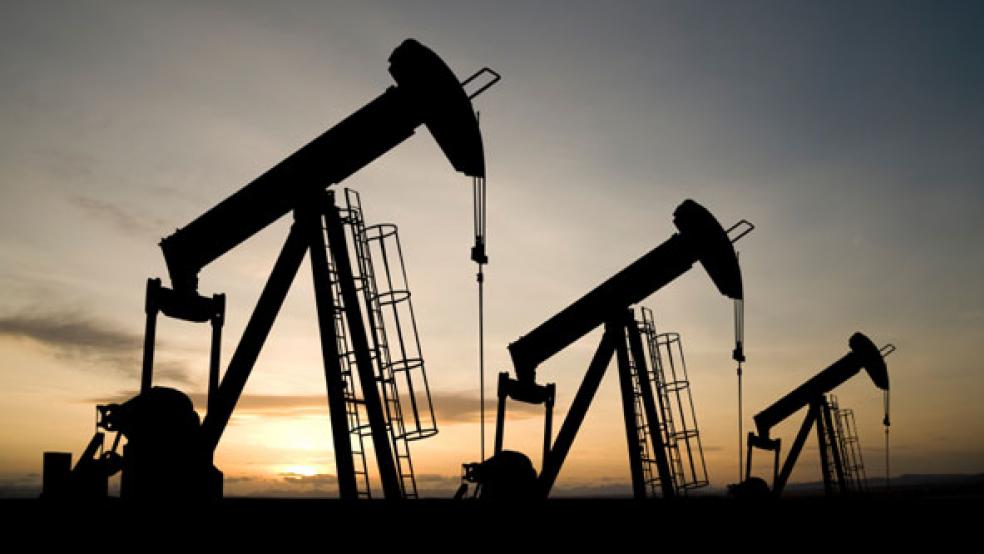Why would the oil producers, who have over the years raised the price of oil at every opportunity they got suddenly agree to drop the price from roughly $120 a barrel to about $80 a barrel?
Saudi Arabia, the largest producer of oil and gas in the Middle East said the revision of the price of oil downwards was done in order to adjust the markets. Hmmm, have they indeed?
Perhaps a better explanation can be found in analyzing who stands to gain the most and who stands to lose the most from this sudden shift in oil prices.
Related: The Threat from Saudi Arabia’s Oil Power Play
The obvious winners would be consumers, where prices at the pump will reflect these changes most clearly. Just as obviously OPEC, the organization that regulates those prices, did not want to slash prices out of the kindness of their hearts. So what is really behind this move?
Let us look first at who the major oil producers are today: Saudi Arabia, Qatar, the United Arab Emirates and the United States, as well as Russia, Iran and the Islamic State.
Of those, we can make a clear distinction between the first four countries who have solid economies and ample amounts of cash reserves and who can sustain a sharp drop in revenue when oil is sold at a lower price. They are also the same group of countries currently leading the fight against the so-called Islamic State.
The big losers in this case will clearly be the last three countries on that list: Russia, Iran and the Islamic State.
Coincidentally, these countries are currently engaged in highly controversial conflicts and are facing opposition from the United States and the West.
Related: Russia Tones Down the Rhetoric as Its Economy Struggles
Russia is involved in Ukraine’s civil war, supporting the separatists in a highly criticized move condemned by the United States and its Western allies. In response, the allies began to impose sanctions as punishment and, given the ruble’s recent downturn, Russia’s credit rating being slashed and desperate gas deals in the Asian markets, it seems that the sanctions have, thus far, been highly successful.
Iran is already suffering from sanctions imposed by the West for its pursuit of a nuclear program, with many countries still skeptical of Iran’s intentions, namely whether the technology will be used for military applications or purely civilian ends, as Iran has repeatedly claimed. Additionally, the Islamic Republic is involved in the civil war in Syria, supporting President Bashar Assad, whom the US and its allies want to see vacate the Syrian presidency. Iran also funds and supports the Lebanese Shi’ite militia, Hezbollah. In order to do so, Iran depends heavily on already limited oil exports to maintain its struggling economy, revenues of which have fallen by 30% according to President Hassan Rouhani.
And finally, the other entity that will be hurt by falling oil prices is the so-called Islamic State, which controls roughly 80 oil wells in Northern Iraq and Syria according to some estimates. The Islamic State was already under-selling the established markets, taking $20 per barrel, as they are hurting for cash in order to fund their military operations on several fronts. On top of this, the current allied airstrike campaign, that has mainly targeted the Islamic State-controlled oil production, is adding yet more pressure to the Islamic State’s economy.
Answers to questions pertaining to current affairs are often found in history books. Indeed if you want to predict the future, study the past.
Related: Russia Seen “In Denial” As Economy Stagnates
Vagif Sharifov, an expert in the oil markets and a senior officer at Trend News Agency in Baku, Azerbaijan recalls the last time the oil markets were so low was when Washington wanted to pressure Moscow towards the end of the Cold War just before the Berlin Wall came tumbling down. Washington’s policy was to try and get the Soviets to spend money they didn’t have. To bankrupt Moscow.
“What followed was the collapse of communism and the disappearance of the Soviet Union,” said Sharifov.
“What is happening today is a repetition of what happened the last time around, the former Cold War warriors fought it out,” said Sharifov.”
This article originally appeared at OilPrice.com.
Read more from OilPrice.com:
OPEC & Russia’s Vulnerability and America’s Ingenuit
Ukraine Facing Harsh Winter Due To Coal Shortages
Russian Credit Rating Slashed, Economic Future Remains Dim




